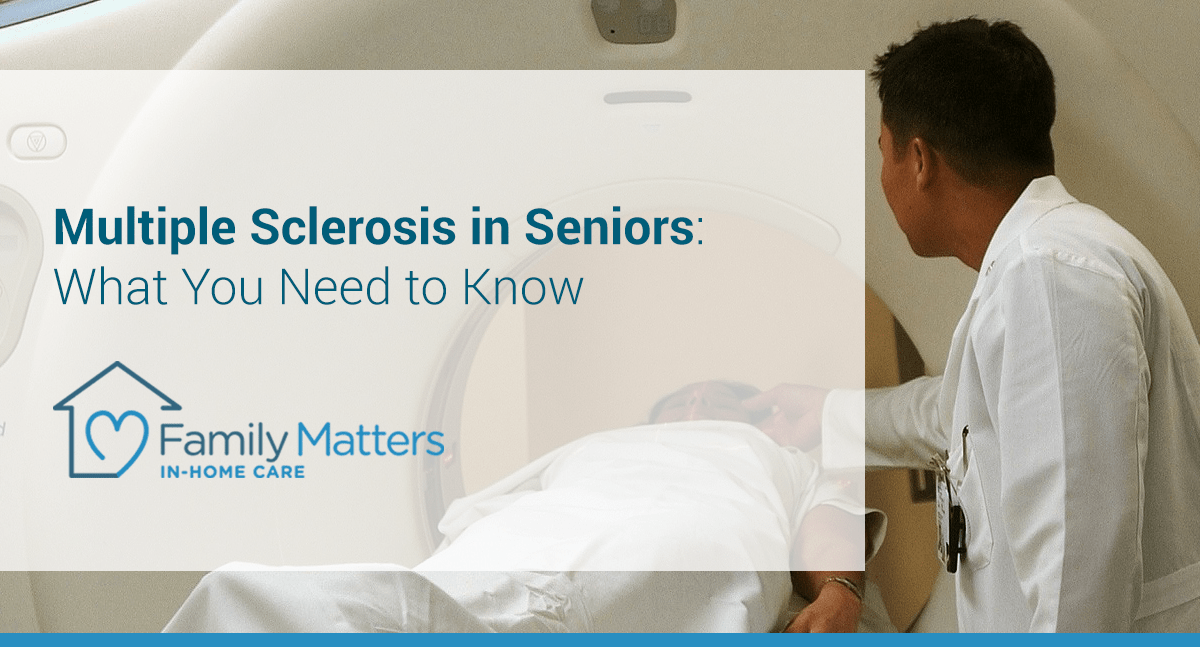
Multiple Sclerosis in Seniors: What You Need to Know
Multiple Sclerosis is a disease that can cause varying degrees of disability. Seniors affected by this disease often go undiagnosed.
Some symptoms of Multiple Sclerosis in seniors can be similar to those of other diseases, normal signs of aging, and common conditions that affect the elderly. As a result, the disease sometimes goes undiagnosed.
Medical practitioners can’t treat a disease if they don’t know someone has it. Since Multiple Sclerosis (MS) can be mistaken as something else, it is important for seniors and their caregivers to know what to look for.
FAQS about Multiple Sclerosis
What is Multiple Sclerosis?
Often called MS, Multiple Sclerosis is a chronic disease of the central nervous system. The disease affects the myelin sheaths around the nerves, in turn causing problems in the communication system between the brain and the body. The resulting issues can become progressively worse.
What Impact does MS Have?
Since MS affects the nerves, it can cause a wide variety of issues. The problems resulting from MS are often unpredictable. Some cases are mild, others are severe. Many with MS develop impairments such as vision loss, a lack of control over muscles, and cognitive issues.
How is MS Treated?
Although MS cannot yet be cured, it can be managed with treatment. There are several medications that can reduce the progression and effects of MS. Different therapies and rehabilitation options can also improve quality of life for those with the disease.
Common MS Symptoms
- Fatigue that worsens throughout the day
- Numbness in the body, face, or legs
- Tight muscles in spasm
- Weakness in the muscles, especially the feet
- Bladder and bowel dysfunction
- Vision problems
- Dizziness
- Pain
- Cognitive issues like difficulty focusing
- Depression
- Sexual dysfunction
Diagnosis Options for Those Who May Have MS
The most common symptoms of MS are also symptoms of a large number of other diseases. They are also similar to what people naturally experience as they age. If someone you know exhibits symptoms of MS (especially if they have risk factors like a relative with the disease), it is wise to consult a doctor.
A diagnosis of MS includes a combination of tests and examinations. Common tests include:
- An MRI to check for lesions in the central nervous system
- A cerebral spinal fluid analysis to look for oligoclonal bands
- An Evoked Potential (EP) test to check nervous system response time
If you or your family member is considering in-home care as part of a plan to age in place, contact Family Matters In-Home Care today for a free consultation. Our team is dedicated to supporting your family and helping older adults enjoy life in the comfort of their own home for as long as possible.
Some of the services offered by Family Matter In-Home Care include: Alzheimer’s & Dementia Care, Bed & Wheelchair Transfer Assistance, Companionship, Housekeeping & Meal Preparation, Personal Care, Recovery Care, and Transportation.
Sources:
- https://cdn2.hubspot.net/hubfs/1708580/Marketing%20Monthlies/PDFs%20from%20Windfarm%20Marketing/0518-WorldMS-GenericRGB.pdf
- https://worldmsday.org/about/
- https://www.everydayhealth.com/multiple-sclerosis/symptoms/multiple-sclerosis-age-progression/
- https://www.seniorliving.org/healthcare/multiple-sclerosis/
- https://www.everydayhealth.com/multiple-sclerosis/symptoms/multiple-sclerosis-age-progression/
